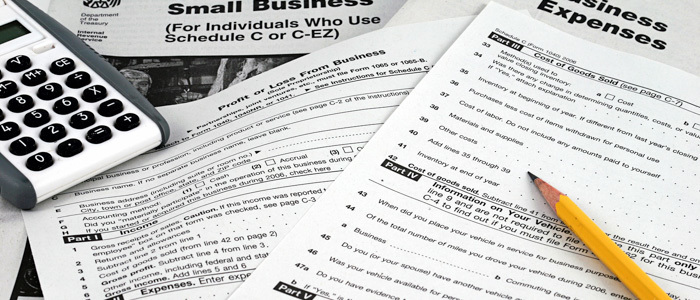Understanding Unemployment Taxes: What to Expect When Former Employees File for Benefits

This article was updated on Oct. 11, 2018.
When an employee is dismissed from a job and applies for unemployment benefits, this can impact the former employer's tax obligations. Unemployment taxes must be carefully tracked and paid by the business to the Internal Revenue Service. Many small businesses pay both a federal and state unemployment tax, so it's important to know the basics behind this taxation.
Understanding FUTA Tax Rules
Under the Federal Unemployment Tax Act (FUTA), workers who lose their jobs may be eligible for weekly payments of unemployment compensation. Contrary to common belief, employees who become eligible for unemployment typically do not have federal or state income taxes deducted from their payments, according to the U.S. Department of Labor. Instead, the employer pays unemployment taxes on the worker's wages.
How Are Unemployment Taxes Determined?
The business implications for managing unemployment taxes are relatively simple. The business must carefully track, report and pay the tax according to IRS Form 940 instructions, managing this along with other payroll responsibilities. The basic guidelines for filing FUTA taxes each year include:
- The business must have paid wages of $1,500 or more to employees during any quarter of the calendar year, or
- The business must have one or more part- or full-time employees (including temporary workers) who have worked on at least one day for 20 or more weeks.
Different rules apply to employers of household and farm workers. Domestic employers must have paid $1,000 or more in wages to employees during any quarter. Agricultural employers must have paid $20,000 or more, or have employed at least 10 workers for a minimum of one day at some point during 20 calendar weeks. Nonprofit organizations are exempt from FUTA, as are American Indian nations if they elect to participate in state unemployment.
Business Implications at Tax Time
Unemployment taxes affect future taxes for the business if it meets one or more of the above qualifications for FUTA and has terminated eligible employees during the tax year. Employees are eligible if they have worked a certain amount of hours and have been terminated through no fault of their own. State workforce development offices (managed by the U.S. Department of Labor) will send a final determination of each employee's eligibility for unemployment compensation and the amount payable. For these employees, the business must assess the correct unemployment tax rates and pay them each year. The tax amount is based on the employee's total unemployment compensation payout for the tax year. Penalties may apply if these taxes are filed late.
Small business owners may want to use a payroll system to help them calculate the correct unemployment tax amounts and employee wages at the time they occur. Reporting features can support end-of-year processing of the business tax return and issue the correct statements to employees who have received unemployment compensation.
Paying unemployment taxes promptly makes good business sense. Use an unemployment tax calculator or work with a certified business tax accountant to determine the correct tax rates for the current year.



